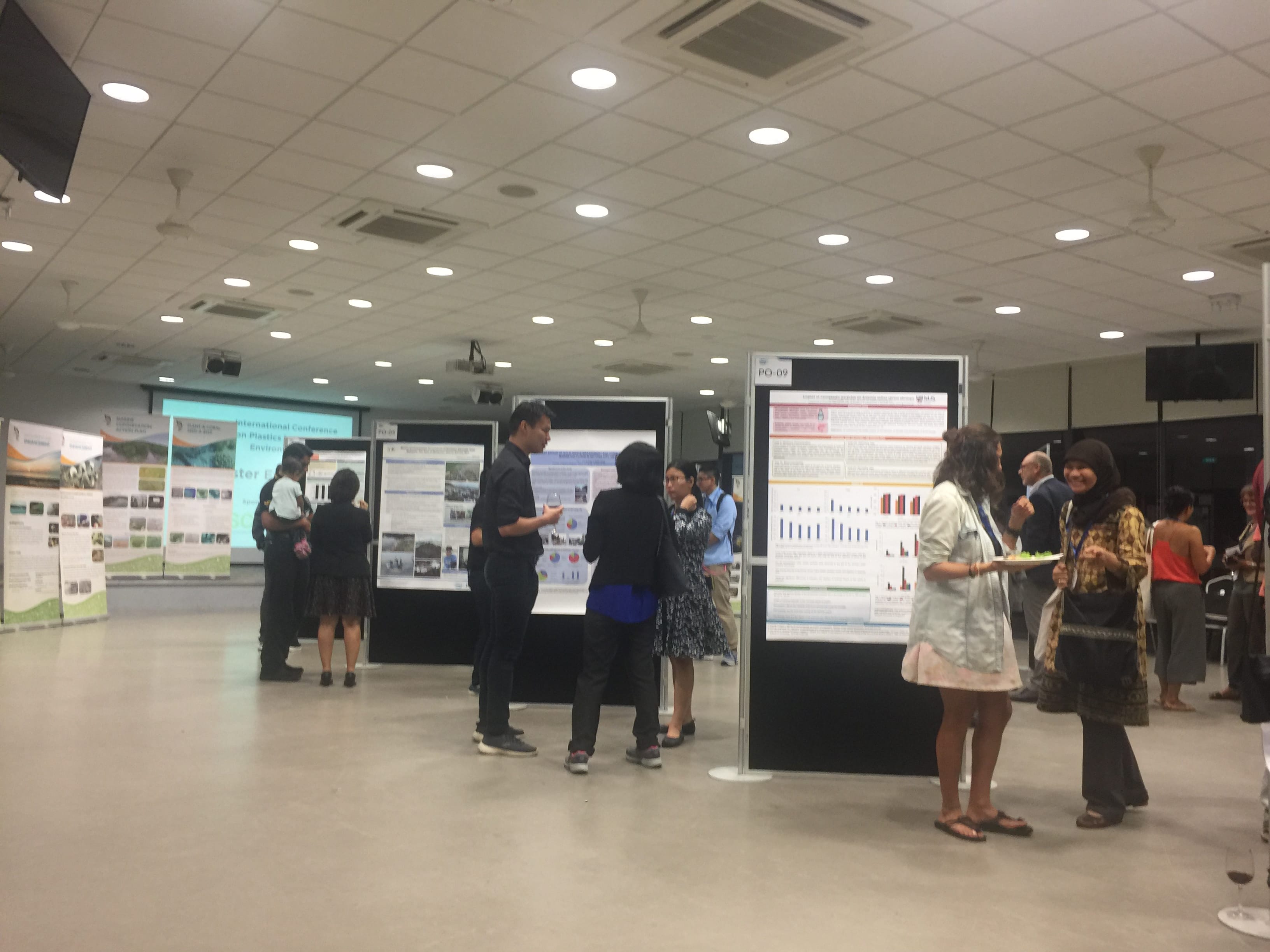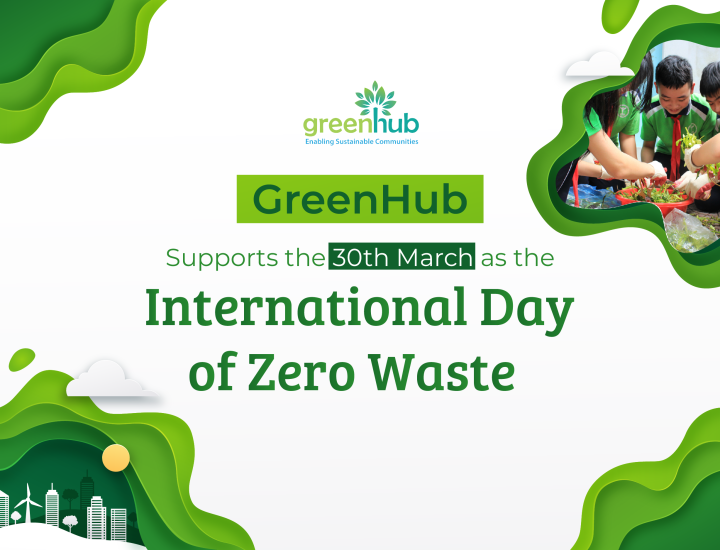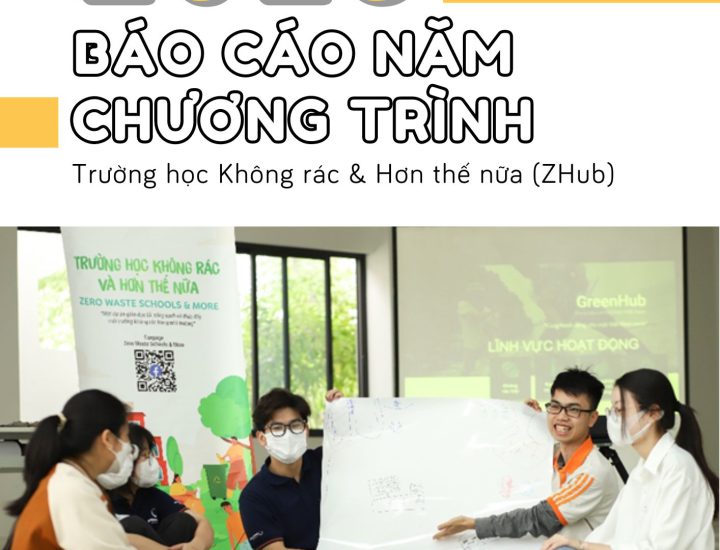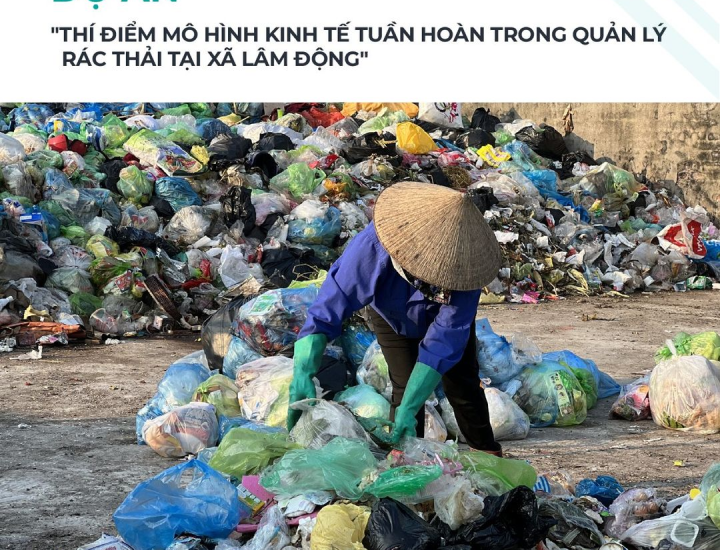GreenHub: Participate in The International Conference on Plastics in Marine Environment 2018

Globally, some eight million tonnes of plastic is dumped into the ocean every year, killing marine life and entering the human food chain. Five Asian nations account for 60% of the waste entering our oceans. The ubiquitous spread of plastic waste into every part of the marine environment has captured the attention of academics, industries, environmentalists, and the public — plastic debris and animals killed by the ingestion of plastic capture the daily struggle of the world’s ocean ecosystems. The massive scale of this problem threatens our food security and sustainability. 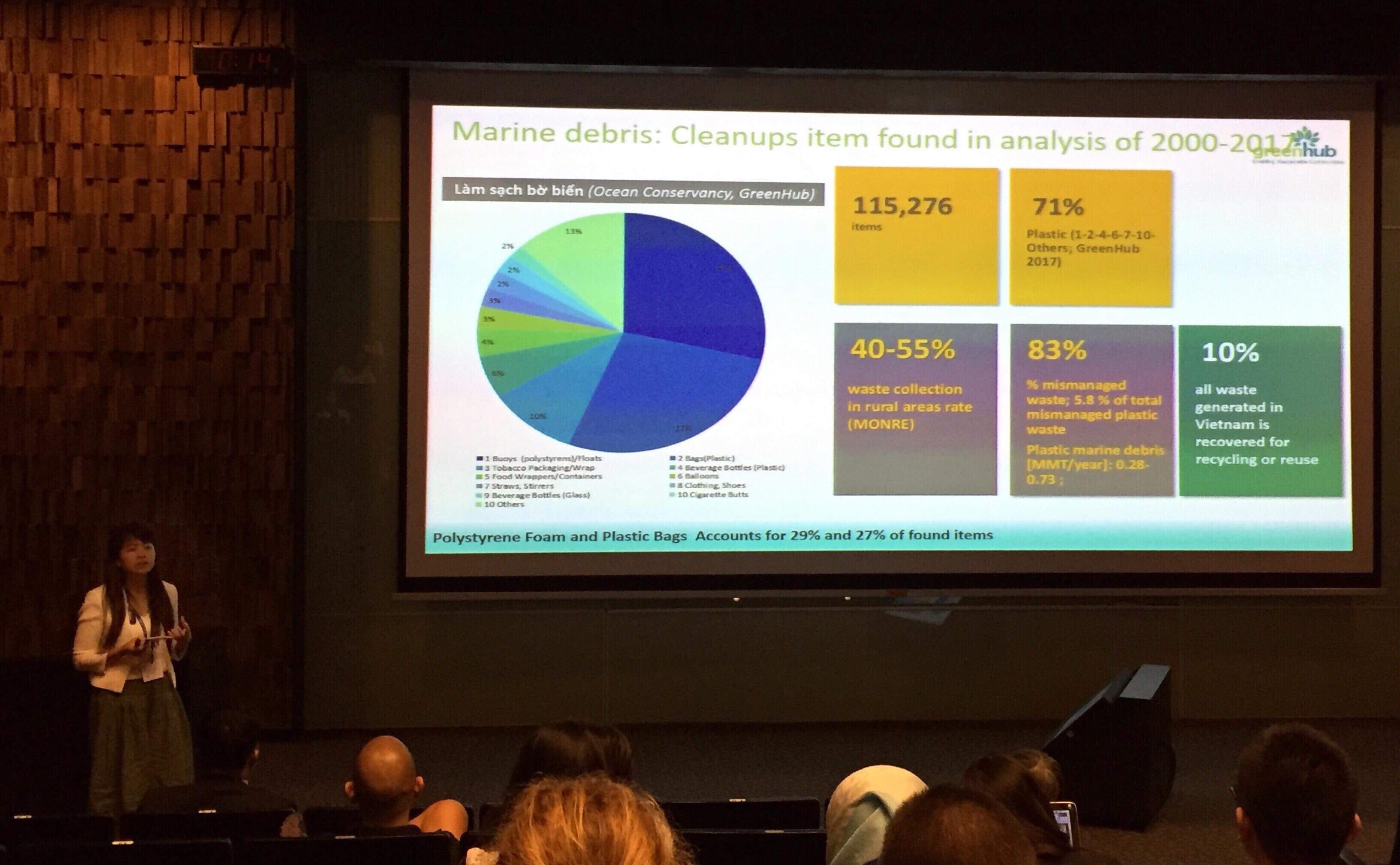
In line with the International Year of the Reef 2018 and Singapore’s Year for Climate Action, The International Conference on Plastics in Marine Environment, Singapore seeks to address the issue of plastic debris in the marine environment, with a special focus on microplastics and the environmental issues facing tropical Southeast Asia.
Under the session on Socio-Economic Issues, Public education and outreach initiatives; Role of NGOs, representative of GreenHub have delivered an oral presentation on “Land-based strategies to address marine debris: Vietnam case study from coastal clean-ups.”
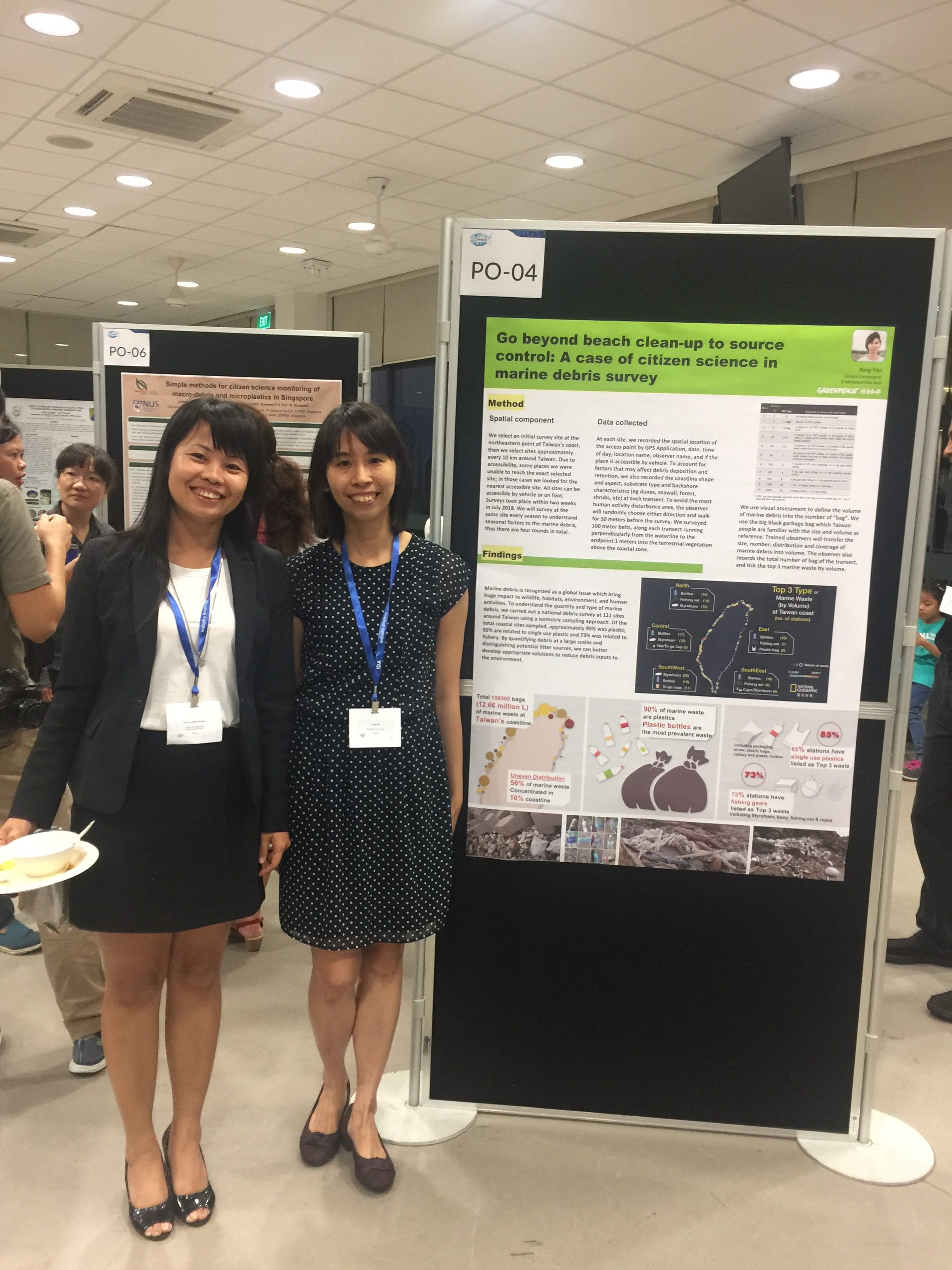
This presentation reviewed and summarized past clean-up events; lessons learned and specifically how these experiences may help to guide future corrective actions in Vietnam. It will also identify the main players in Vietnam that include coastal and marine litter activities in their work programs, relationships to wider waste management challenges, and issues of plastic pollution. The waste management, marine litter, and plastics environmental, gender community and networking program initiatives were shared. Ms. Trang emphasized that “one among prioritized solutions should be developing a Standard protocol for monitoring with engagement citizen science to map locations of hot-spots with marine debris; plastic pollution and coordination for shoreline clean-ups. This will provide scientific evidence for the National Action Plan.”
